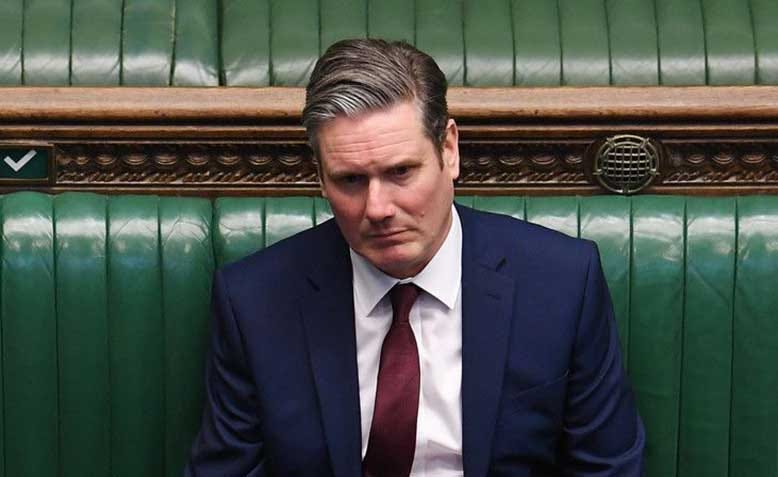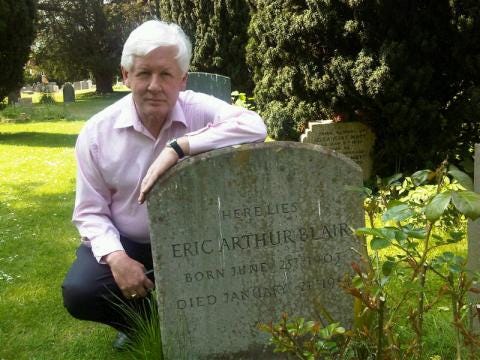Toronto, September 15, 2024
How should we be?
Some people are naturally pessimistic. Keir Starmer, the new UK prime minister, seems inclined that way. On August 27, shortly after his triumphant win in a general election, he gave a preternaturally gloomy speech in the Number 10 Downing Street rose garden. Describing the state of his country, he referred to “deep rot in the heart of the structure,” a “deeply unhealthy society,” “division and decline,” and an economic and societal “black hole.” He said “things will get worse before they get better” and proclaimed “we have to end the politics of the easy answer that solves nothing.”
Starmer’s dejection might just be part of a traditional political strategy (“once we saw the books after the election, we realized that things were even worse than our worst nightmare”). He’s not election campaigning now: his job is to govern in difficult circumstances. Dramatically lowering expectations makes sense. Or does it? In a new book, Tony Blair, former UK prime minister, emphasizes the need for leaders to project optimism. He writes, “No one wants to get on a plane with a depressed pilot.”
A few days before Starmer’s downhearted rose garden speech, former USA President Bill Clinton gave an enthusiastic address to the Democratic National Convention in Chicago. Said Clinton: “Even on the bad days, you can still make something good happen… Kamala Harris is the only candidate in this race with the vision, the experience, the temperament, the will, and—yes—the sheer joy to do that on good and bad days…Take it from the Man from Hope, Kamala Harris is the woman from joy.”
Several commentators have observed that joy is neither an election strategy nor a government policy. Perplexity, a chatbot, says that the phrase “strategy of joy” encapsulates “a critique of political strategies that prioritize emotional appeal or personal charisma over detailed policy proposals, suggesting that voters should demand more substantive platforms from their candidates.”
It’s absurd to cast a vote for just joy. It’s a repudiation of sensible democratic politics. But, at the moment, Harris’s job is to win an election, not govern a country. Starmer-style downbeat rhetoric may not suit the purposes of her campaign. But, apparently, gloom does serve the purposes of her opponent. During this past Tuesday’s presidential debate, Donald Trump said, “Our country is being lost. We’re a failing nation... And what, what’s going on here, you’re going to end up in World War III.”
Everyone sees the great issues and events of the day through a personal prism. What’s it to be—gloom, joy, or something tremulous in between? Some people see only disasters, multiplying in number, kind, and intensity. They feel hopeless: action appears pointless. Others perceive hope and opportunity: they are prepared, with good humour, to struggle in the face of adversity and see what can be done.
A few days ago, Cynnie and I visited Janet, a friend and neighbour in Port Medway. Janet, in her seventies, suffered a stroke a year ago and spent three months in hospital. Her right side is paralysed. She lives alone in a house by the sea. She is in a wheelchair. We sat and talked by windows with an expansive view of the ocean. Janet was unremittingly cheerful, full of praise for members of the small community who help her in a thousand different ways. Her optimistic plans for the future poured forth.
Heraclitus said “character is destiny.” Temperament counts too.
*****
Some reader comments on Newsletter #79 (“The island of Jura”)
One reader wrote: “One Sunday afternoon, we did exactly what you did…drove out to Sutton Courtenay to pay homage too…not to Asquith, but to Catalonia.”
The friend that took me to Sutton Courtenay is apparently a serial visitor to Orwell’s grave. He sent this picture, taken on another occasion:
This interesting comment: “From a song called ‘Standing Outside A Broken Phone Booth With Money In My Hand’ by Primitive Radio Gods:
‘If I die before I learn to speak
Can money pay for all the time
I lived awake but half asleep?’
Seems relevant in a twisty way to Michael’s poem.”
A friend who lives part of the year in Edinburgh commented: “Scotland is good for writers who need to get away from it all.”
A Nova Scotia reader tells me: “Forget Herbert Asquith … the real star in that firmament was Margot Asquith. When her two volume autobiography was published, Dorothy Parker remarked, ‘The affair between Margot Asquith and Margot Asquith will live as one of the prettiest love stories in all literature.’”
A reader asks, “How could this be?”: “During our recent experience with lock-downs resulting from a new virus in our midst, I researched various viewpoints on what was actually happening hoping to a find 'the truth.' ... Since Orwell's name appeared occasionally, and I hadn't read him, I decided to reserve a copy of 1984 at La Grande Bibliothèque de Montrèal. The book was in the library but not available for borrowing. I tried again. Still, no borrowing right was granted. How could this be?”
*****
A quotation from a book I am reading at the moment (an occasional bonus feature of The Endgame)
Howard Norman’s fine new novel, Come to the Window, is set in Nova Scotia after the First World War. The title comes from Matthew Arnold’s poem “Dover Beach” (“Come to the window, sweet is the night-air!”) Here are a few lines from early in Norman’s book (a whale has washed up on the beach):
“...somewhere around 4 a.m., she had said, ‘Darling, come to the window. A whale has intervened on our wedding night.’ But Everett Dewis refused her request, and a certain ‘rage of disappointment’ overtook her... Elizabeth promptly went into his leather satchel, removed his military revolver, and said, ‘Everett, here comes a dry morsel...’ and shot him ‘three times in the body.’ She then threw on Everett’s nightshirt and went down to visit the whale.”






Your reading is a tad mordant
But if you want me to look at the bloody whale I will.
Begrudgingly
Many of us are also pondering Sir Keir’s downbeat ‘strategy’ on this side of the pond too. Leaving aside one’s political leanings for a moment, there’s a thesis waiting to unfold here, for students of leadership studies…
One view: by all means lower expectations, but be careful not to dig a bunker too big to climb out of. Keir can’t remain negative forever.
Another view: leadership ultimately must be tied to a positive vision. As Blair said, the pilot needs to remain upbeat whatever he might see through the cockpit window!
Rather than giving himself a get-out, Keir is actually in danger of displaying a weakness he will struggle to shake off. You would think nobody would want more Johnsonian bluster at times like this but ironically, some still do!
Keir needs to hit the middle ground if he’s to lead us to the promised land.. if he doesn’t give us a more positive vision of a better future we won’t follow him through the sticky period, long enough for him to get us unstuck!
Your friend though, is right, nothing good will come from abject negativity. Ever.